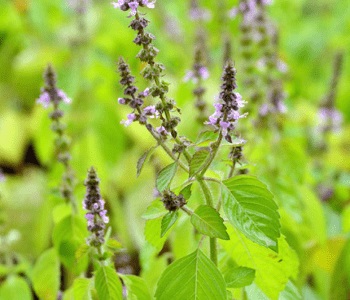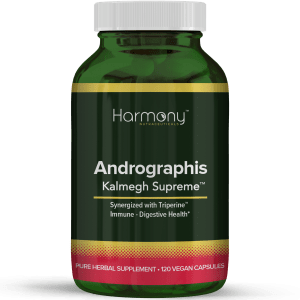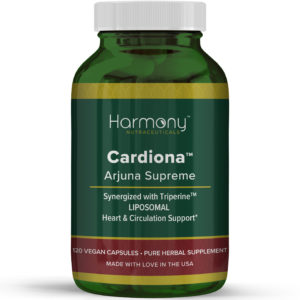Tulsi (Holy Basil): What Are The Types, Health Benefits, Facts & Uses
What is Tulsi?
Tulsi also referred to as Ocimum sanctum or Holy Basil, is a medicinal herb that belongs to the mint family and is found in 150 different varieties worldwide.
Tulsi has been used for thousands of years in Ayurveda, a Hindu form of medical science, for its diverse healing properties. It is mentioned in the Charaka Samhita, an ancient Ayurvedic text. It has been the ‘Herb royale’ to the French, a sign of love by Italians, and a sacred herb in India. The plant is grown in homes, temples, and gardens all over India. Tulsi is considered to be an adaptogen, balancing different processes in the body. Marked by its strong aroma and astringent taste, it is regarded in Ayurveda as an “elixir of life” and believed to promote longevity.
Different Types of Tulsi (Holy Basil):
There are three different types of Tulsi or Holy Basil, namely…
Rama Tulsi:
Rama Tulsi is also called green leaf tulsi that has light purple flowers and has a clove-like scent to it. It consists of eugenol which is usually found in cloves and has a mellow flavor.
Krishna Tulsi:
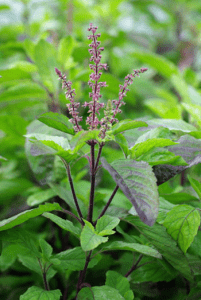
- Krishna Tulsi plant is also called as purple leaf tulsi and has a clove-like aroma. It tastes like pepper in your mouth.
- This type of tulsi helps cure infections such as throat infections, respiratory problems, earaches, and skin diseases.
- The oil from Krishna Tulsi is used as ear drops. Helpful in indigestion, insomnia.
Vana Tulsi:
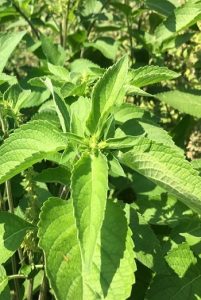
- This type of tulsi is usually grown for medicinal purposes and it is imbibed into Indian religious beliefs.
- It has light green leaves that are accompanied by a lemony aroma and flavor.
- Vana Tulsi leaves increase immunity and this is usually used for preparing tea.
- When consumed in the form of tea, it provides health benefits such as increased physical and mental endurance and adds more oxygen and nutrients in your bloodstream.
What are the Medical Uses of Tulsi?
Tulsi is called the wonder herb or sometimes the holy herb because of its medicinal properties & health benefits. It…
- Boosts Cardiovascular Health
- Treats Respiratory Illnesses
- Lowers Cortisol Levels
- Soothes Indigestion
- Controls Blood Glucose Levels
- Improves Liver Function
- Helps with Weight Loss
- Prevents Hair Loss
- Improves Immunity
- Tulsi leaves are used to treat skin problems like acne, blackheads, and premature aging.
In simple terms, Tulsi is the best natural painkiller and solution to many of your health problems. It can be called the ancient healer of all diseases. It helps generate healthy mother milk during lactation.
Specific Role Of Tulsi On Respiratory System:
The presence of components like vitamin C, Camphene, “Eugenol, and Cineole” the essential oils in Tulsi helps in viral, bacterial, and fungal infections of the respiratory system to give miraculous relief in congestion and supporting respiratory disorders both chronic and acute. Used as an expectorant and bronchodilator, helpful in rhinitis (inflammation of nasal mucus membrane).
Facts On Why Do Experts Recommend Adding Tulsi to Daily Diet?
- Several kinds of research over the years have proved what Indians have been saying for ages, that Tulsi is the “Queen of Herbs”.
- Scientists and researchers are now asking people to add Tulsi leaves, Tulsi infused water, or even Tulsi extract capsules in their daily diets as it protects the human body from various diseases.
- Tulsi tea with honey is a good expectorant especially in cases where fever is involved.
- However, more studies have revealed that Tulsi is also a mood booster, and regular consumption of Tulsi may even lead to alleviating the symptoms of depression.
- Tulsi leaves can be added to hot water and it will help you when you are steaming to get rid of a bad cold or sinus.
Blog Disclaimer: This disclaimer informs readers that the views, thoughts, and opinions expressed in the Blog section belong solely to the author who are independent writers and not necessarily to Harmony Nutraceuticals or Harmony Veda. Our writers are not employed or related to us in any way. The Blog provides an opportunity for authors to express their own views and opinions on Ayurveda, various health topics and supplements.
